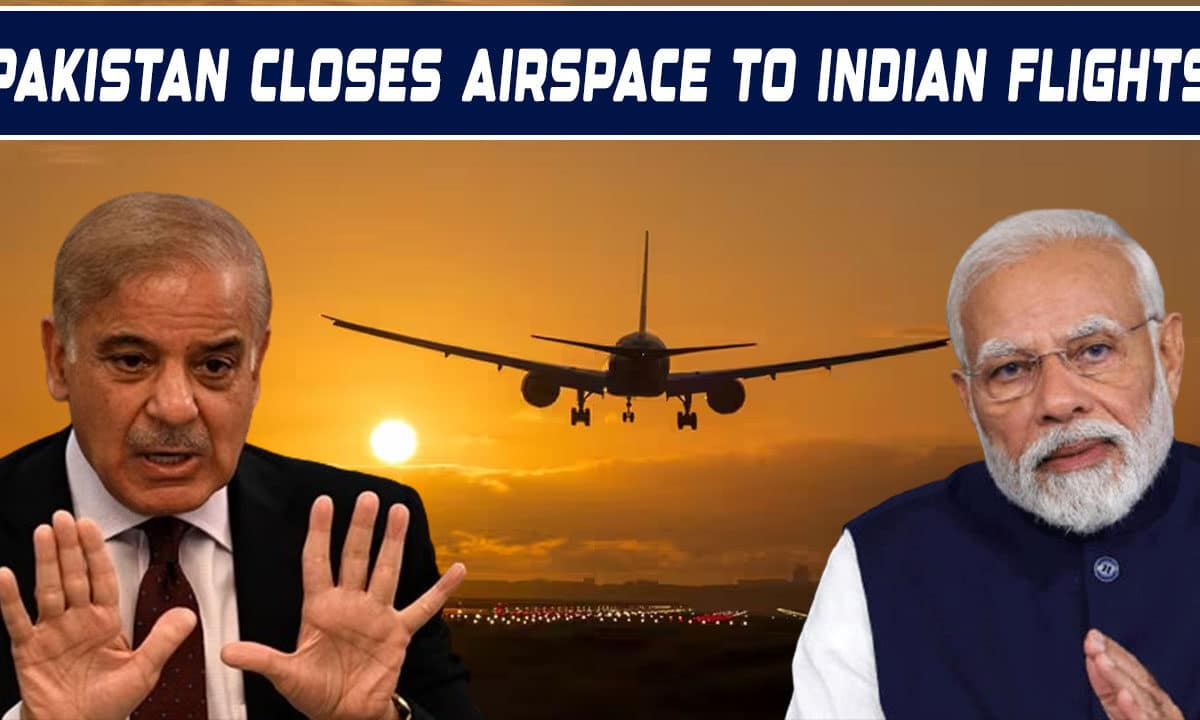Pakistan Closes Airspace to Indian Flights After Diplomatic Fallout: How It Will Affect International Travel?

New Delhi: In a significant escalation following the deadly terror attack in Pahalgam, Pakistan has closed its airspace to Indian carriers, creating major disruptions for international flight routes originating from India—especially from the northern region. The closure is expected to lead to longer travel times, higher ticket prices, and tighter baggage restrictions.
Table of Contents
Diplomatic Tensions Hit Air Travel
The decision comes after India launched a strong five-point diplomatic offensive against Pakistan, including the suspension of the Indus Waters Treaty and a scale-down of diplomatic presence. In response, Pakistan not only closed its airspace to all Indian-registered aircraft and aircraft leased by Indian operators but also suspended SAARC visas for Indians, halted bilateral treaties like the Simla Agreement, and shut down the Wagah border crossing.
Airlines and Passengers Bear the Brunt
Air India and IndiGo have confirmed rerouting their flights due to the airspace restrictions. Flights from Delhi, Amritsar, Jaipur, Lucknow, and Varanasi to destinations in North America, Europe, and the Middle East will now have to take longer routes via the Arabian Sea, increasing journey durations by up to 2.5 hours.
A senior pilot explained, “Detours increase fuel consumption and affect payload. In many cases, airlines will have to reduce baggage loads and restrict passenger numbers to maintain safety margins.”
What This Means for Travelers
📈 Airfares Set to Rise
With increased operating costs, industry experts predict airfare hikes between 8% and 12% on affected routes. If the closure continues, prices may rise further.
⌛ Longer Flight Durations
Travelers can expect journey times to extend by up to 2.5 hours, potentially leading to missed connections and revised travel plans.
🧳 Limited Baggage and Seats
To compensate for increased fuel loads, airlines may reduce baggage allowances and passenger loads, resulting in fewer available seats and overbooked flights.
Airline Responses
Air India, in a public statement, expressed regret for the inconvenience, noting that passenger and crew safety remains its top priority. IndiGo also acknowledged disruptions and assured travelers that their staff is working to ensure minimal delays.
Air India Express and SpiceJet, which also operate international routes, are likely to feel the impact as well.
A Repeat of 2019?
This is not the first time Pakistan has shut down its airspace to Indian flights. A similar ban followed the Balakot airstrikes in 2019 and remained in place for several months, causing significant financial losses to airlines.
Tips for Affected Travelers
- Book Early: Lock in lower fares before prices climb further.
- Stay Updated: Monitor airline apps or websites for real-time flight updates.
- Expect Delays: Plan for longer transit and connection times.
- Travel Light: Be ready for tighter baggage limits.
As tensions between India and Pakistan escalate, the aviation sector and international travelers find themselves caught in the crossfire once again.

